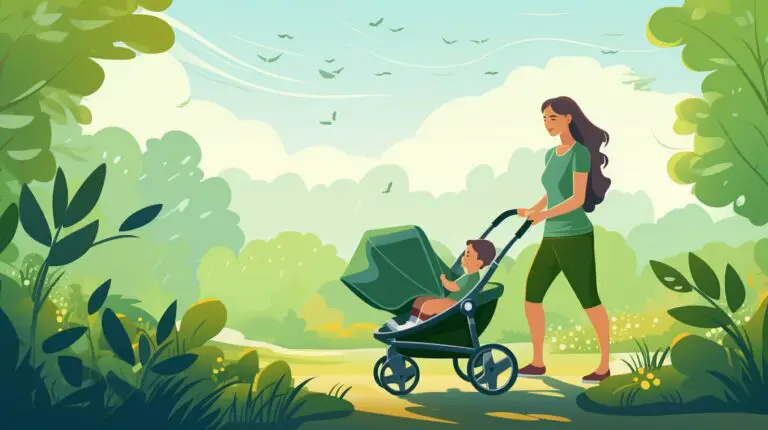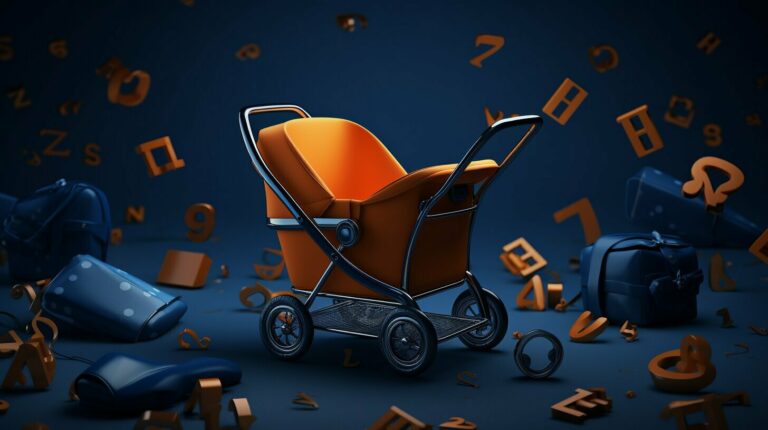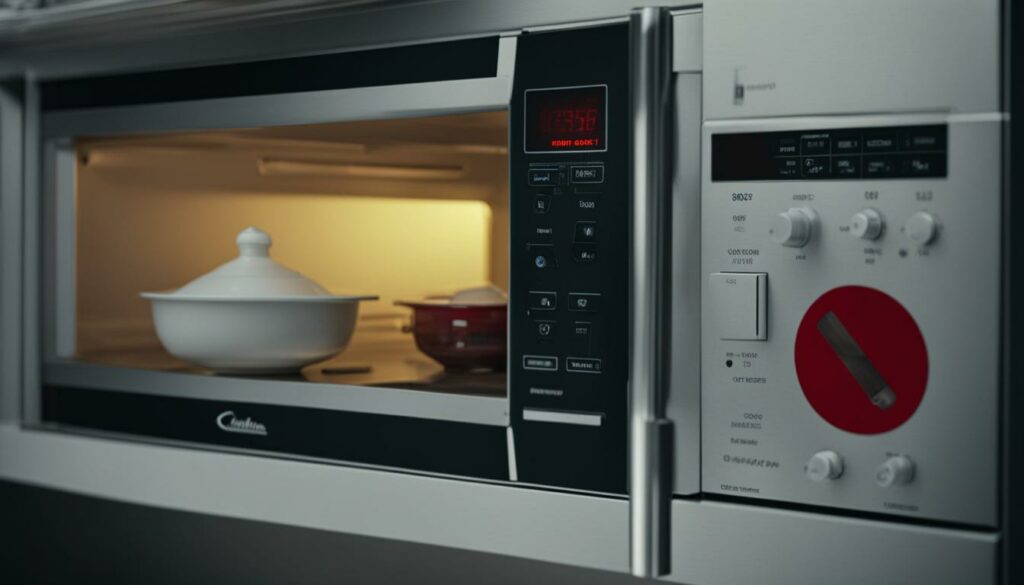As a new parent, you want to ensure that your baby has the best possible safety and comfort. Choosing the right stroller is an essential part of that process, and you might be wondering about its lifespan. Do strollers expire? How long can you use them? These questions are common among new parents, and we’re here to provide you with all the necessary information.
Strollers are an investment, and you want to get the most out of them. However, like most other products, strollers do have an expiration date. Understanding the lifespan of your baby gear is crucial in ensuring your baby’s safety and well-being.
In this guide, we will answer all your questions about stroller lifespan and help you make informed decisions about your baby’s stroller. We’ll delve into the factors that affect the longevity of your stroller, the safety implications of using an expired stroller, and how you can prolong its lifespan. By the end of this guide, you’ll have a clear understanding of how long you can use your stroller and what to look out for when it’s time to replace it.

Key Takeaways:
- Strollers do have an expiration date, and it’s important to know when it’s time to replace them
- Using an expired stroller can pose safety risks to your baby
- Factors like quality, usage, and maintenance can affect the lifespan of your stroller
- Proper care and maintenance can help extend the usability of your stroller
- Repurposing or recycling your expired stroller is an eco-friendly option
Understanding Stroller Lifespan
As a responsible parent, it’s essential to ensure that your baby’s stroller is in good condition. Understanding the lifespan of a stroller will help you make informed decisions about when to replace it and how best to care for it.
The average lifespan of a stroller can vary depending on several factors, including:
| Factor | Impact on Lifespan |
|---|---|
| Quality of materials and construction | Determines how long the stroller can withstand wear and tear |
| Frequency of use | Regular use can lead to more wear and tear, shortening the lifespan |
| Environmental factors | Exposure to the sun, rain, and other weather elements can cause material degradation, affecting the stroller’s lifespan |
| Maintenance and care | Proper maintenance can help prolong the stroller’s lifespan, while neglect can cause it to deteriorate more quickly |
On average, quality strollers can last anywhere from three to five years with proper care and maintenance. However, some high-end models can last for up to ten years, while cheaper and lower-quality strollers may require replacement after just a year or two of use.
To ensure that your stroller lasts as long as possible, it’s important to follow the manufacturer’s recommendations for care and maintenance. This may include regular cleaning, lubrication of moving parts, and timely repairs for any damages. Regular inspections of key parts, such as the wheels, brakes, and harness, can also help catch and address any issues before they escalate.
By being proactive in caring for your stroller, you can help ensure its longevity and maintain the safety of your baby.
Safety Considerations for Expired Strollers
As a responsible parent, you prioritize the safety of your baby above all else. It’s essential to know if your stroller is expired or not, and what risks come with using an old stroller.
“Using an expired stroller can pose a danger to your child and increase the risk of accidents.”
Strollers, like any other product, have a lifespan. Over time, wear and tear can affect the stroller’s performance and safety features. The materials can become weaker, the parts can break down, and the overall stability of the stroller can decrease. These issues can compromise your baby’s safety and well-being.
Moreover, strollers that have been recalled may still be in circulation, and it’s crucial to check if your stroller has been recalled.
How to Check if a Stroller is Expired
The first step to ensuring your baby’s safety is to check if your stroller has expired. Most strollers have an expiration date, which can usually be found on a sticker or plate on the frame. If you can’t find the expiration date, a good rule of thumb is to replace your stroller after six years.
Additionally, if you notice any of the following signs, it may be time to replace your stroller:
- The fabric is torn, faded, or stained
- The wheels wobble or do not roll smoothly
- The frame is bent or cracked
- The brakes do not work properly
- The harness or straps are frayed or damaged
Remember, compromising on your child’s safety, just to save money is never a good idea.
Why Using an Expired Stroller is Dangerous
Strollers that have expired or have been recalled can put your baby’s safety at risk. The safety features of an expired stroller may not work as intended, which could result in a serious accident. Additionally, defects in the stroller’s design or structure may not have been apparent when you first bought it, but could become evident over time.
The risks of using an expired stroller include:
- Unstable or wobbly wheels that could cause the stroller to tip over
- Brakes that fail to work or engage properly
- Broken or weakened parts that could collapse under the weight of your baby
- Straps or harnesses that could break or come undone, causing your baby to fall out

The bottom line is that using an expired stroller is not worth the risk. It’s always better to err on the side of caution and prioritize your baby’s safety. In the next section, we’ll discuss the signs of an expired stroller so you can identify when it’s time to replace it.
Signs of an Expired Stroller
It’s crucial to understand how to tell if your stroller has expired to ensure the safety of your baby. Here are some signs to look for:
- Age: Most strollers have a lifespan of about 4-6 years. If your stroller is older than this, it’s likely expired.
- Worn-out Fabric: Check for any tears, holes, or fraying in the stroller’s fabric. If the material is worn out, it’s a sign that the stroller has been used for a long time and might be expired.
- Broken Parts: Inspect the stroller’s wheels, brakes, and frame for any cracks or damages. If any of these parts are broken, the stroller is no longer safe to use and has expired.
- Missing Parts: If any parts of the stroller are missing, it can compromise the safety and functionality of the stroller, and it’s a sign that the stroller might have expired.
Keep in mind that these signs don’t necessarily mean that your stroller has expired, but they should prompt you to inspect the stroller more closely and consider replacing it if necessary.

Tip: If you’re unsure whether your stroller has expired, check the manufacturer’s website or contact their customer service for guidance. You can also consult with a certified child passenger safety technician for an expert opinion.
Extending Stroller Lifespan
Your stroller is an essential piece of baby gear. Naturally, you want it to last as long as possible. Fortunately, there are a few simple things you can do to make your stroller last longer.
First, always follow the manufacturer’s instructions for care and maintenance. This may include regular cleaning, lubrication, and inspections. Keeping your stroller in good condition will help it function properly and prevent premature wear and tear.
Second, consider investing in stroller accessories that can help protect your stroller from damage. For example, a stroller organizer can keep your stroller’s handlebar clean and prevent scratches from keys or other items in your bag. Similarly, a stroller rain cover can protect your stroller’s fabric from water damage.
Third, avoid overloading your stroller or using it for purposes it wasn’t designed for. A stroller is not a substitute for a shopping cart or a luggage carrier. Overloading your stroller can put undue stress on the frame, wheels, and other components, causing them to wear out faster.
Lastly, be mindful of where you store your stroller. Keeping it in a cool, dry place can prevent rust and corrosion. Avoid storing it in direct sunlight or damp areas, as this can cause the fabric to fade or mold.
Additional Tips:
- Check your stroller’s tires regularly and replace them as needed.
- Keep the brakes properly adjusted and replace them if they become worn.
- Don’t hang heavy bags from the handlebar, as this can affect the stroller’s balance.
- Store your stroller indoors during extreme weather conditions, such as heavy rain or snow.
Remember, taking good care of your stroller can help you save money and keep your baby safe and comfortable during outings. A few simple steps can make a big difference in extending the lifespan of your stroller.
Repurposing and Recycling Expired Strollers
When your stroller has reached the end of its lifespan, there are eco-friendly options for dealing with it. Repurposing and recycling are two great ways to give your stroller a new purpose and reduce the amount of waste produced.
Repurposing Expired Strollers
One way to repurpose an expired stroller is to turn it into a garden cart or tool carrier. Remove the seat and canopy, and you have a useful cart for hauling bags of soil or carrying tools around your yard. You can also use the frame as a base for a DIY wagon or bike trailer.
Another option is to donate your stroller to a charity or community organization. Many places accept gently used baby gear and redistribute it to families in need. Check with local churches, shelters, or non-profit organizations to see if they are in need of strollers.
Recycling Old Strollers
If you cannot find a way to repurpose your stroller, recycling is a responsible option. Many communities offer curbside recycling programs that accept bulky plastic items like strollers. Check with your local recycling center or waste management agency to find out if they accept strollers or offer special drop-off locations.
Another option is to search for specialized recycling centers that handle baby gear. These facilities typically disassemble strollers and other baby products, separating the plastics, metals, and other materials for recycling.
By repurposing or recycling your stroller, you can reduce the amount of waste sent to landfills and help protect the environment for future generations. Take a look around your house, and see if any other baby gear items can be repurposed or recycled as well.
You may also like to check:
Guide: How to Travel with a Baby Stroller Stress Free
Creative Ways to Repurpose Stroller for New Use!
When to Put Your Baby in a Stroller Without a Car Seat: Complete Guide
Uncover the Truth: How Much Does a Stroller Cost?
Understanding Which Way Your Baby Should Face in Stroller
Guide to Keeping Your Baby Warm in a Stroller Safely
Conclusion
Congratulations, now you have a better understanding of the lifespan of strollers and how to prioritize your baby’s safety. Remember that strollers do indeed expire, and it’s important to regularly check for signs of wear and tear to ensure they’re still safe to use.
If your stroller has reached its expiration date or is showing signs of wear and tear, be sure to dispose of it properly. Instead of just throwing it away, consider repurposing or recycling it to minimize its impact on the environment.
Recap of Key Points
- Strollers expire, and it’s important to understand their lifespan to prioritize your baby’s safety.
- Factors that can affect stroller lifespan include quality, usage, and maintenance.
- Using an expired stroller can pose safety risks to your baby.
- Signs of an expired stroller include worn-out wheels and torn fabrics.
- Proper care and maintenance can help extend the lifespan of your stroller.
- Repurposing or recycling your expired stroller is an eco-friendly option.
By following the tips provided in this article and regularly checking for signs of wear and tear, you’ll be able to make informed decisions about your baby’s stroller and ensure their safety and comfort while on-the-go.










